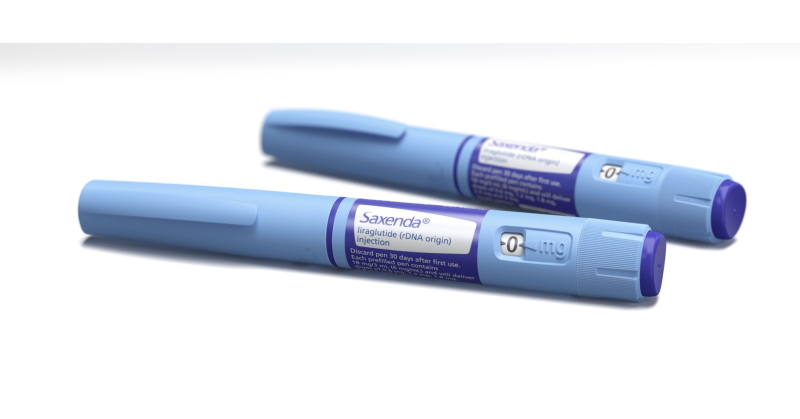Price cut leads NICE to back Novo Nordisk’s obesity drug Saxenda

Novo Nordisk’s Saxenda has been recommended by NICE as a treatment for obesity, ending a 10-year drought in new drug therapies for weight management.
The cost-effectiveness agency for England and Wales has recommended Saxenda (liraglutide) as a treatment option for people with a body mass index (BMI) of 35 or more, and who are also pre-diabetic with a high risk of developing cardiovascular disease because of risk factors such as high blood pressure or high cholesterol levels.
NICE tuned down the GLP-1 agonist earlier this year, but changed its stance after Novo Nordisk offered a confidential discount to the NHS.
Saxenda – which comes as prefilled self-injection pen – will be used as part of a programme based on a reduced-calorie diet and increased physical activity, according to NICE, and treatment should be discontinued if patients don’t lose at least 5% of their body eight within 12 months.
“Our independent committee was presented with clinical evidence which showed that people lose more weight with liraglutide plus lifestyle measures than with lifestyle measures alone,” said Meindert Boysen, NICE’s deputy chief executive.
“Liraglutide may also delay the development of type 2 diabetes and cardiovascular disease and this is the main benefit of treatment,” he added. It will be prescribed in secondary care, by a specialist multidisciplinary tier 3 weight management service.
Denmark-based Novo Nordisk said there are 13 million obese people in England with obesity, placing them at risk not only of diabetes and heart disease but also severe COVID-19 symptoms if infected with SARS-CoV-2.
The NICE recommendation coincided with Novo Nordisk’s third quarter results statement, which showed modest 3% growth for Saxenda in the first nine months of the year to DKK 4.2 billion ($661 million), held back by the impact of the pandemic on patients accessing healthcare.
That also put a brake on Novo Nordisk’s other products, which are mainly use for chronic diseases like diabetes, although it said a “gradual recovery” occurred in the third quarter. All told, sales grew 7% in the nine months to just under DKK 95 billion ($14.9 billion).
Saxenda continues to develop a dominant position in obesity pharmacotherapy however, and Novo Nordisk said the drug currently has a market share of 63% worldwide.
The company’s GLP-1 agonists for diabetes grew strongly, thanks to its once-weekly injectable Ozempic (semaglutide) which grew 119% to DKK 15 billion ($2.35 billion), overtaking Novo Nordisk’s older Victoza (liraglutide) product which requires dosing by injection every day.
Ozempic is squaring off in the market against Eli Lilly’s Trulicity (dulaglutide), which grew 22% to $3.57 billion in the same period.
Novo Nordisk also recorded DKK 1 billion ($156 million) in sales for its new oral formulation of semaglutide – Rybelsus – which started to roll out this year.












